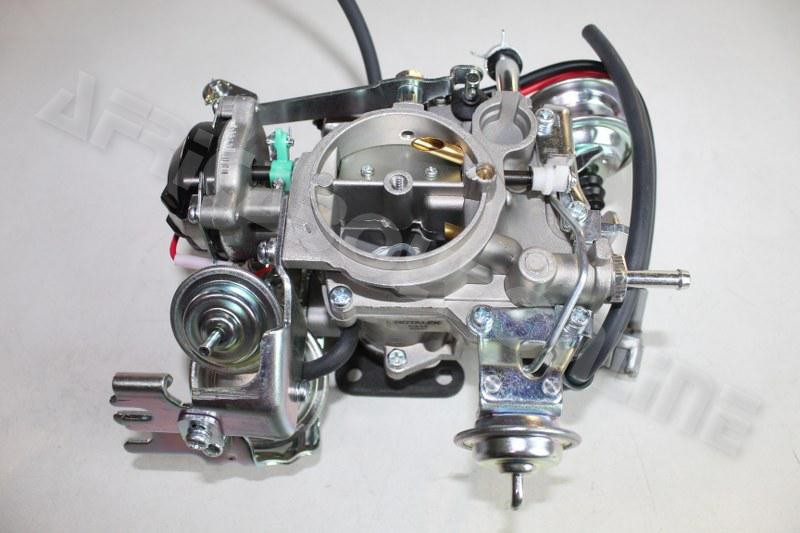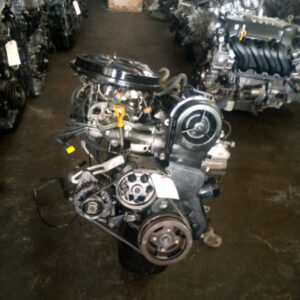Toyota Tazz: A Reliable and Affordable Compact Car for Everyday Use
Toyota Tazz: A Reliable and Affordable Compact Car for Everyday Use
Blog Article
Check Out the Most Recent Trends in Engine Technology Through Tazz
In the rapidly evolving landscape of automotive modern technology, Tazz stands at the leading edge, highlighting substantial innovations in engine systems that focus on both development and sustainability. From hybrid engines that maximize gas effectiveness to the development of hydrogen gas cells, the patterns shaping modern powertrains are not just improving performance yet likewise dealing with crucial ecological difficulties.
Hybrid Engine Innovations
Hybrid engine innovations stand for an essential shift in auto modern technology, integrating the advantages of internal combustion engines with electric propulsion systems. This integration not only improves fuel effectiveness but additionally minimizes emissions, conference progressively stringent ecological regulations. By using both power sources, hybrid engines can optimize performance, delivering power when required while preserving fuel throughout less demanding motoring conditions.
Recent advancements in crossbreed technology include renovations in battery efficiency and regenerative stopping systems. These innovations enable greater power healing throughout deceleration, which can be redirected to aid in acceleration or power auxiliary systems. Producers are concentrating on lightweight products and compact layouts to make best use of the effectiveness of hybrid powertrains.
The growth of plug-in crossbreeds has also expanded the market, making it possible for vehicle drivers to charge their automobiles making use of typical electric outlets. This function often enables for significant all-electric variety, further lowering reliance on conventional fuels. tazz. As the automotive sector remains to progress, hybrid engine technologies are anticipated to play a vital duty in linking the void between traditional automobiles and completely electric models, offering a transitional service that provides to varied customer requirements and preferences
Developments in Electric Powertrains
The vehicle landscape is quickly developing, with electric powertrains becoming a leading pressure in lasting transportation. Advancements in electric lorry (EV) modern technology are dramatically improving individual, efficiency, and efficiency experience. Secret developments include renovations in battery chemistry, which have increased power density, decreased charging times, and expanded overall battery life.
Solid-state batteries, for instance, guarantee to revolutionize the marketplace by offering better security and performance contrasted to conventional lithium-ion cells. Innovations in regenerative braking systems are making it possible for vehicles to recuperate power during slowdown, adding to total performance.
Along with battery modern technology, electrical motor designs are coming to be a lot more sophisticated. Advancements such as integrated motors and advanced thermal monitoring systems are aiding to maximize power delivery and minimize weight, eventually improving automobile dynamics.

Jointly, these advances underscore the commitment to change in the direction of cleaner, extra reliable transport options, placing electric powertrains at the forefront of automotive innovation.
The Rise of Hydrogen Gas Cells
Significantly, hydrogen gas cells are acquiring traction as a viable alternative to typical inner combustion engines and battery electric cars. This modern technology takes advantage of the chemical energy stored in hydrogen, transforming it right into electrical power through an electrochemical response with oxygen. The main by-product of this procedure is water, making hydrogen fuel cells an environmentally pleasant choice with no emissions at the tailpipe.

Car manufacturers are significantly investing in hydrogen fuel cell innovation, identifying its capacity for long-range applications and quick refueling capacities that measure up to conventional fuels. Furthermore, markets such as sturdy transportation and public transit are particularly well-suited for hydrogen fuel cells, where battery electric options might drop short as a result of weight and variety limitations.
As research study and financial investment remain to increase, hydrogen gas cells are positioned to play a substantial duty in the future landscape of tidy transport and power remedies.
Enhancements in Internal Combustion Engines
Advancements in inner combustion engine (ICE) technology are transforming traditional vehicles to meet modern ecological criteria and efficiency assumptions. One of the most significant improvements entails the assimilation of sophisticated fuel injection systems. These systems optimize the air-fuel mixture, boosting burning effectiveness and leading to decreased exhausts. Direct gas injection, for circumstances, enables for better atomization of gas, leading to more full combustion and enhanced power result.
Additionally, turbocharging has gotten prestige, allowing smaller engines to supply higher efficiency without the weight of larger engines - tazz. This modern technology not just increases performance but additionally adds to lower fuel intake. Variable shutoff timing systems are likewise being fine-tuned, enabling engines to adapt to numerous driving conditions for enhanced torque and responsiveness
Additionally, using light-weight products in engine construction is coming to be conventional, additional enhancing fuel efficiency by lowering general lorry weight. Engine control units (ECUs) are progressively innovative, enabling real-time changes that optimize performance and exhausts.
These improvements collectively symbolize a pivotal shift in ICE innovation, straightening with global sustainability goals while still supplying the efficiency vehicle drivers anticipate from their cars. As the industry develops, these enhancements proceed to shape the future of conventional vehicle design.
Future Fads in Engine Performance
Significant innovations in engine efficiency are expected as producers concentrate on incorporating cutting-edge innovations to satisfy rigid ecological laws and customer needs. The change in the direction of electrification, crossbreed systems, and different gas is improving the auto landscape, driving innovations that enhance gas economy and reduce emissions.
Among the vital fads is the execution of advanced materials and making strategies. High-strength alloys and light-weight composites contribute to reduced car weight, hence enhancing general efficiency. Additionally, the fostering of official source turbocharging and variable shutoff timing technologies enables for enhanced power output from smaller sized engines, better improving fuel economy.

Final Thought
Finally, the exploration of engine technology exposes substantial advancements that prioritize sustainability and effectiveness. Innovations in crossbreed engine systems, electrical powertrains, and hydrogen gas cells demonstrate a dedication to minimizing emissions while improving performance. Furthermore, renovations in interior burning engines and a focus on lightweight products add to total engine efficiency. As the automobile market remains to evolve, these fads will play an essential function in shaping a cleaner and even more lasting future for this page transportation.
From hybrid engines that optimize fuel performance to the emergence of hydrogen gas cells, the fads forming modern powertrains are not only enhancing performance however likewise attending to essential ecological obstacles.Crossbreed engine technologies stand for an essential change in vehicle modern technology, incorporating the advantages of interior combustion engines with electric propulsion systems.Additionally, turbocharging has gained prominence, permitting smaller sized engines to supply greater performance without the weight of larger engines. Additionally, the fostering of turbocharging and variable valve timing technologies permits for enhanced power result from smaller sized engines, additionally improving fuel economy.
Improvements in inner burning engines and a focus on light-weight products contribute to overall engine performance.
Report this page